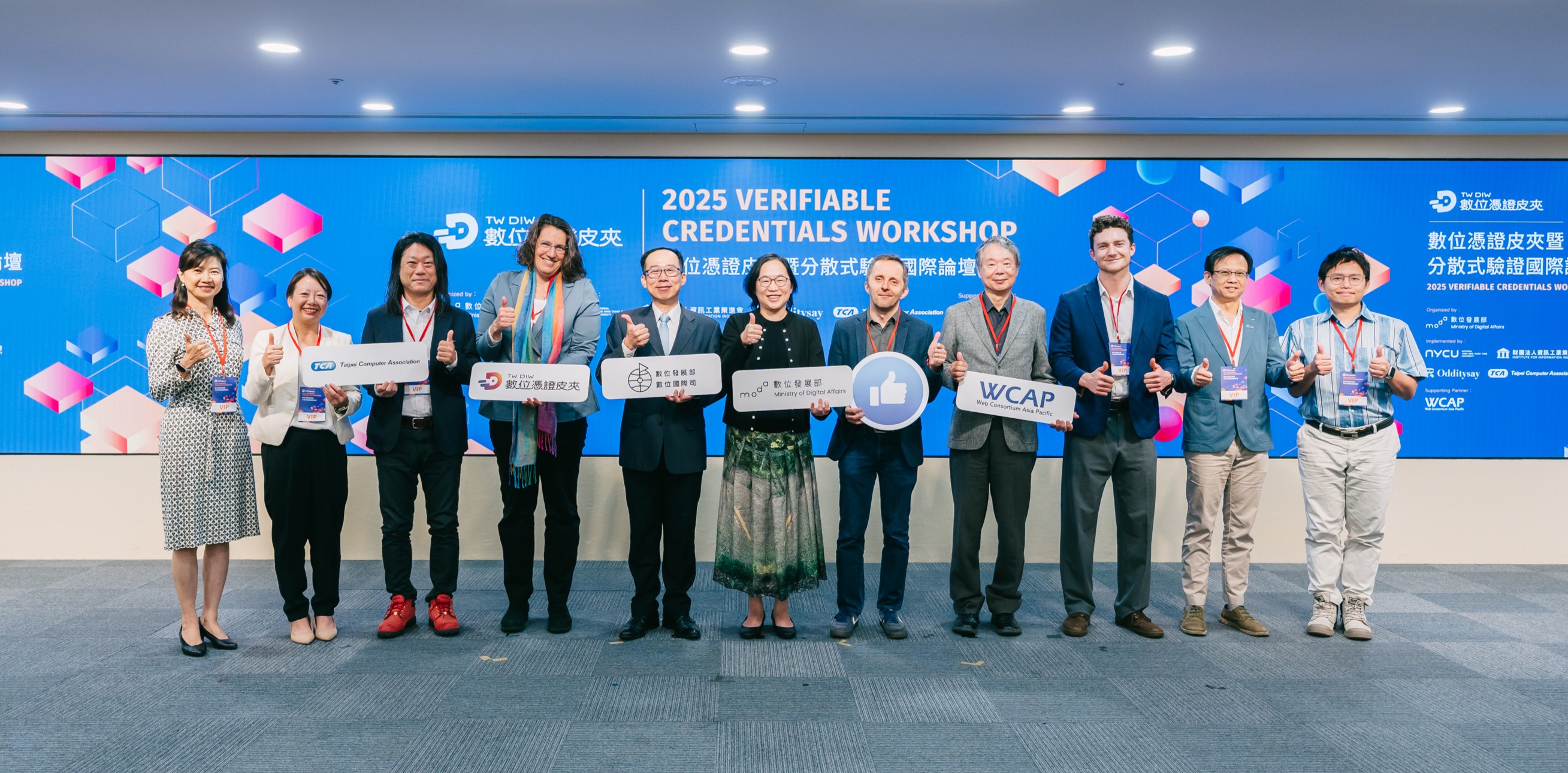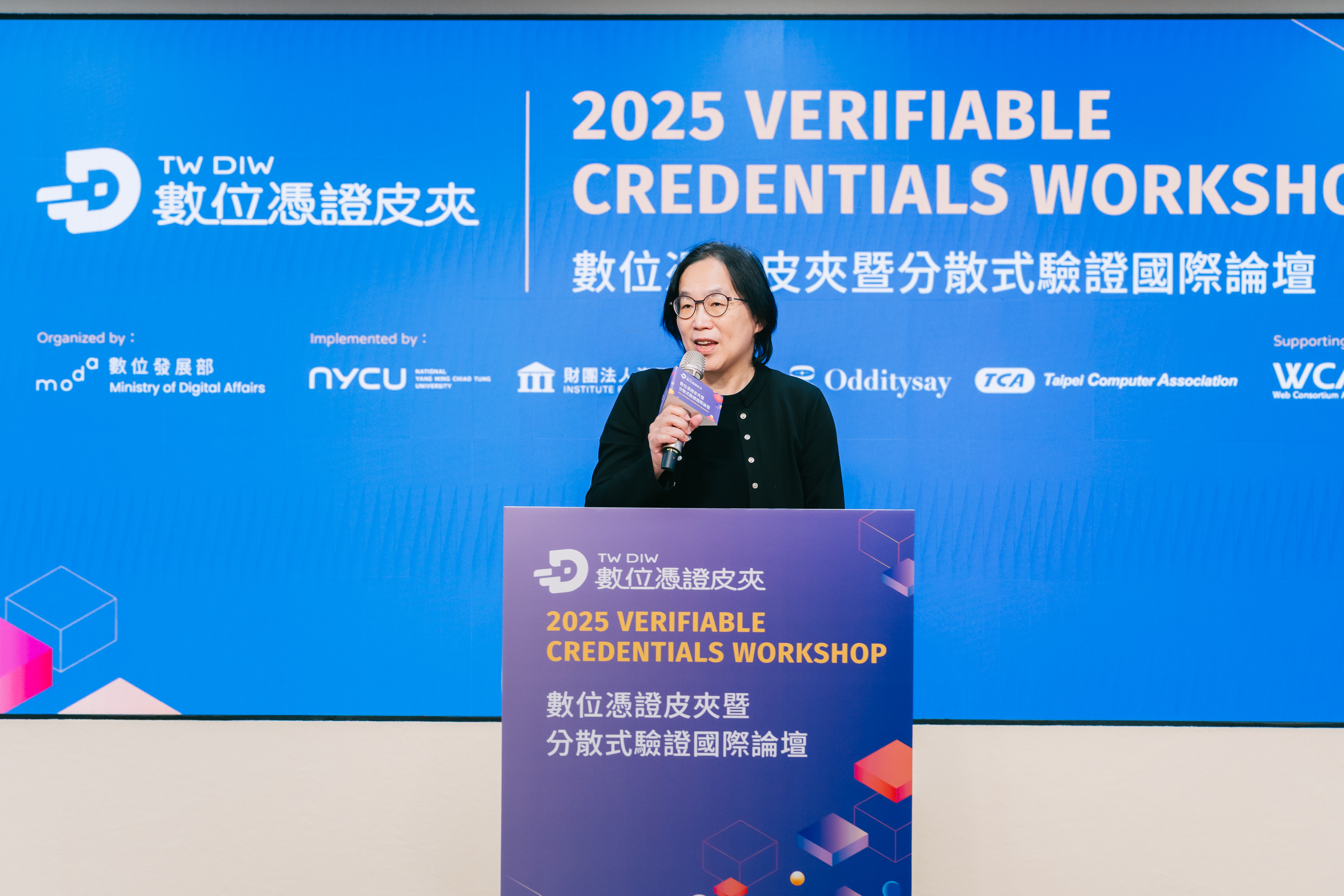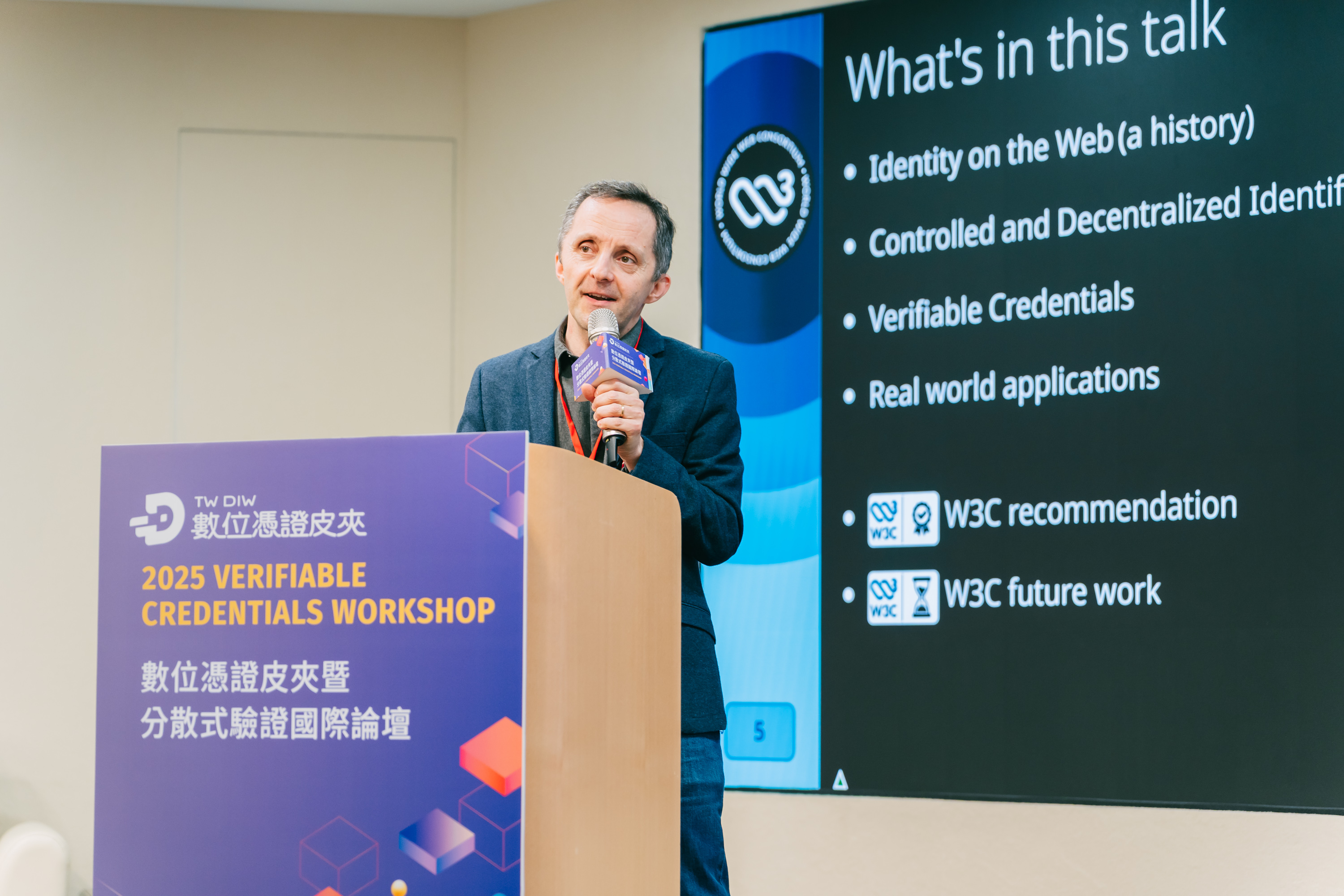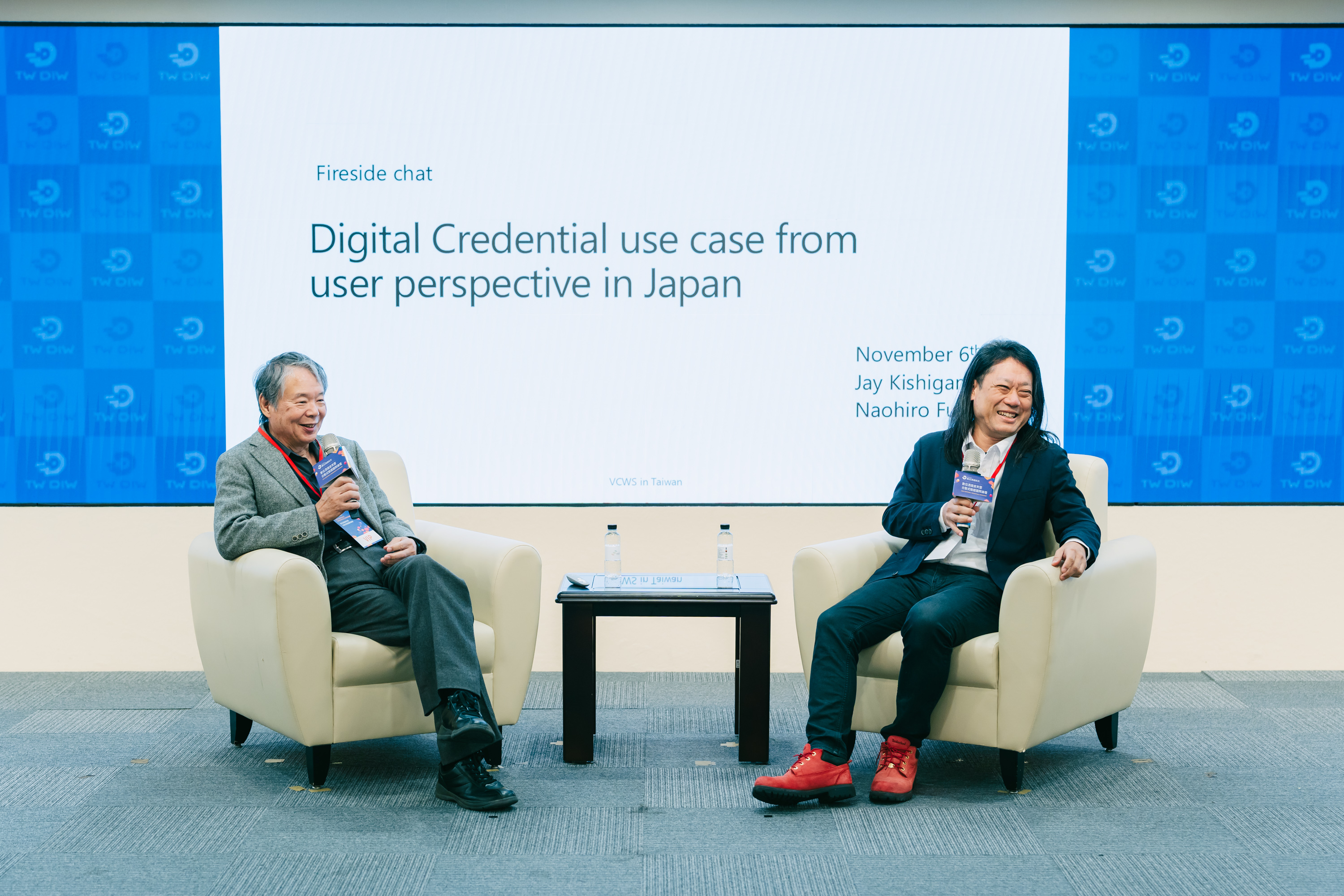2025 Verifiable Credentials Workshop: Digital Trust in Taiwan is Moving toward Globalization
The 2025 Verifiable Credentials Workshop organized by the Ministry of Digital Affairs (MODA) came to a successful conclusion on November 6 at the Chang Yung-Fa Foundation International Conference Center. The event attracted more than 80 representatives from the industry, government, academia, and research sectors, as well as international organizations. The workshop focused on issues such as standards for verifiable credentials (VCs), technical architecture, privacy protection, and cross-border verification, opening a new chapter for Taiwan’s digital trust and bringing Taiwan more in line with international standards.
Deputy Minister Isabel Hou of the MODA stated that Taiwan’s accession to the World Wide Web Consortium (W3C) is proof of Taiwan’s active participation and efforts in the field of international digital standards and verifiable credentials. This workshop allows Taiwan to learn from case studies in countries such as the UK, US, France, and Japan, thereby jointly promoting the development of cross-border verification technology. In the future, the MODA will continue to strengthen public-private partnerships and international collaboration in order to create a secure and reliable digital credential ecosystem.
The main focus of this workshop was “Digital Trust and Collaboration,” emphasizing that digital credentials are the cornerstone of the digital society and trust economy. It also explored how to build a decentralized governance model centered on “citizen data autonomy,” aiming to establish a trust-based verifiable credential ecosystem through open standards and international collaboration. The event invited experts from the W3C and several speakers from around the world to deliver keynote speeches and participate in panel discussions, covering topics such as the latest developments in the W3C Verifiable Credentials 2.0 standard, international cooperation in digital public infrastructure, and development strategies for balancing digital credentials and privacy.
The W3C’s Principal Data Strategist Pierre-Antoine Champin, the lead speaker at the workshop, stated that the Digital Credentials API represents a significant breakthrough in data verification and authorization. Based on the three principles of cross-platform compatibility, privacy, and standardization, it allows users to securely display credentials through a browser or digital credential wallet and use selective disclosure technology to prove specific attributes, while also ensuring privacy is not compromised. The API also emphasizes user consent and authorization, provides a clear user interface, strengthens users’ control over their data, and promotes a safer and more privacy-oriented online trust ecosystem.
During the workshop, experts from the Asia-Pacific, Europe, and the Americas also shared their practical experiences in the application of digital credentials, showcasing the important progress made globally in digital credential innovation. Through the discussions throughout the day, the MODA hopes that all sectors can reach a consensus and implement tangible cooperation, from standards to practices, thus laying a stronger foundation of trust for the digital society of the future.
The MODA noted that this workshop is an important step forward in the international cooperation on the Taiwan Digital Identity Wallet. In the future, Taiwan will work with the W3C, WCAP, and partners in the Asia-Pacific to promote standardization and applications, strengthen privacy and digital trust, and lay new foundations for Taiwan’s digital governance and industrial innovation.




